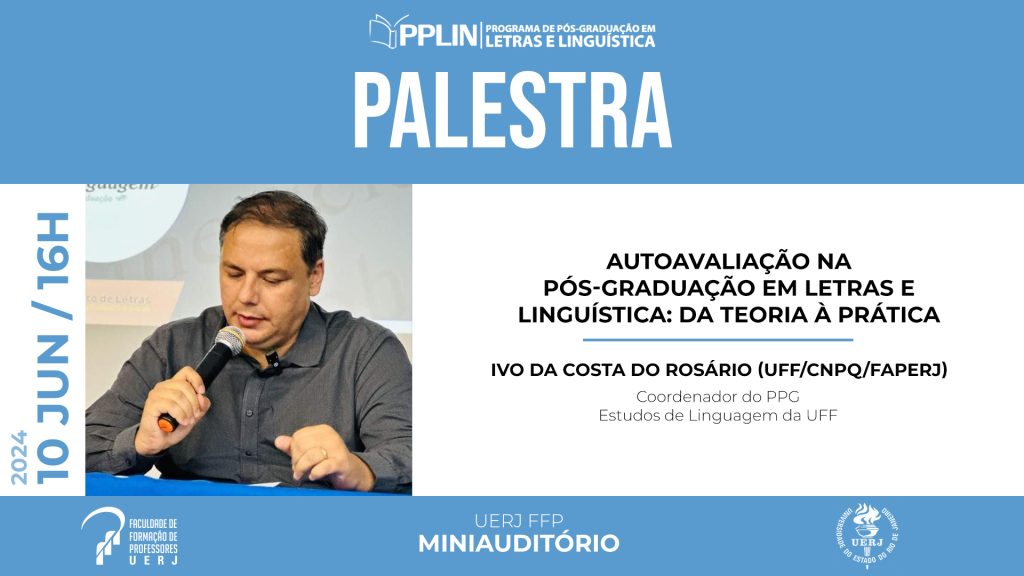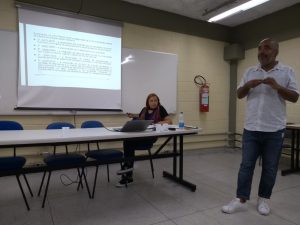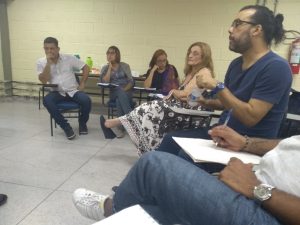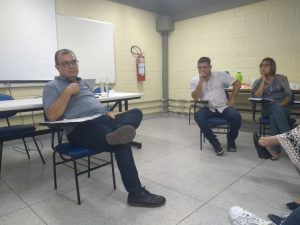Self-evaluation committee
Prof. Dr.
Leonardo Mendes
Profa. Dra.
Norma Sueli Rosa Lima

Self-evaluation is a fundamental process for quality improvement and monitoring of the actions and activities that make up the graduate program. In the specific context of this graduate program, self-evaluation plays a crucial role in assessing the processes, procedures, and results related to the Program’s operation and design.
The Program adopts a continuous and participatory evaluation approach, involving teachers and student representatives, promoting transparency in decision-making. To deal with these issues, actions are taken both through permanent committees (scholarships, events, seminars, among others) and temporary ones (website, internal regulations, etc.), as well as through the specific nomination of teachers to coordinate specific tasks. Broader and more complex evaluative actions are a constant practice throughout the course and are guided by the monthly meetings of the Collegiate. An Internal Seminar is held periodically, and it is permanently aimed at having teachers and students evaluate the Program. Therefore, all relevant decisions undergo collective evaluation and deliberation, ensuring transparency and the participation of those involved.
Consistent self-evaluation begins by defining the objectives and criteria for the procedures. Based on this, in 2016, with the start of the program and the first class, initial discussions focused on the program’s evaluation through the approval document. In this first year, the focus was on organizing the program, creating documents and standards, understanding demands, and establishing the secretariat. In 2017, the Program promoted the first discussions on self-evaluation. It is worth mentioning that the PPLIN was the pioneering Program in Rio de Janeiro to hold a Self-Evaluation Seminar, even before CAPES made it a requirement.
In April 2018, PPLIN held its first Self-Evaluation Seminar entitled “O desafio da construção do conhecimento acadêmico” (The challenge of building academic knowledge). The event consisted of two Panels, two Conferences and two Meetings in the following areas of concentration: Language Studies and Literary Studies.
At the time, the Coordinator presented a panel about CAPES’ document on“Letters and Linguistics” and the Assistant Coordinator presented one on “Results of the CAPES Quadrennial Evaluation”, 2013-2016. There was also a conference entitled “O Plano Nacional de pós-graduação e os programas de Letras: alguns problemas e muitos desafios” (The National Graduate Plan and Letters Programs: Some Issues and Many Challenges), held by a professor from USP, and another conference held by a professor from UFF, entitled “Plano Nacional de Autoavaliação e a implementação da Autoavaliação pela CAPES” (“The National Self-Evaluation Plan and the Implementation of Self-Evaluation by CAPES”). The Program’s professors met twice at the I Seminar to discuss and analyze the evaluation of the areas of concentration of Language Studies and Literary Studies. Finally, there was a General Meeting focused on discussing the “Evaluation and Goals for 2018, 2019, and 2020”.



In October 2019, the second Self-Evaluation Seminar took place. The program included a panel presented by the Coordinator about CAPES and the Self-Evaluation of Graduate Programs. In addition, there was a series of lectures given (a) by the Unit’s Director — entitled “Pós-graduação: compromisso e demandas” (Postgraduate studies: commitment and demands); — (b) by the Director of the Humanities Center, entitled: “O PPLIN no cenário de Pós-graduação no CEH” (PPLIN in graduate courses at CEH); (c) by students of the Program: Student representation and PPLIN: evaluation and self-evaluation; (d) by professors of the Program on the topic Revista Soletras: evaluation and consolidation actions. As part of the II Seminar’s program, there were two rounds of talks with the program’s professors, the first of which discussed what could be adjusted in the CAPES Quadrennial 2017-2020andthe second showed an overview of the areas of concentration. At the end of the II Seminar, a final document was prepared.
In July 2023, the IV Program Self-Evaluation Seminar took place. The program included Working Groups (WGs) of professors and students who met to discuss the following topics: Basic Education, Student Production, and Internationalization. At the end of the discussions, a Panel was presented with the main conclusions and proposals.